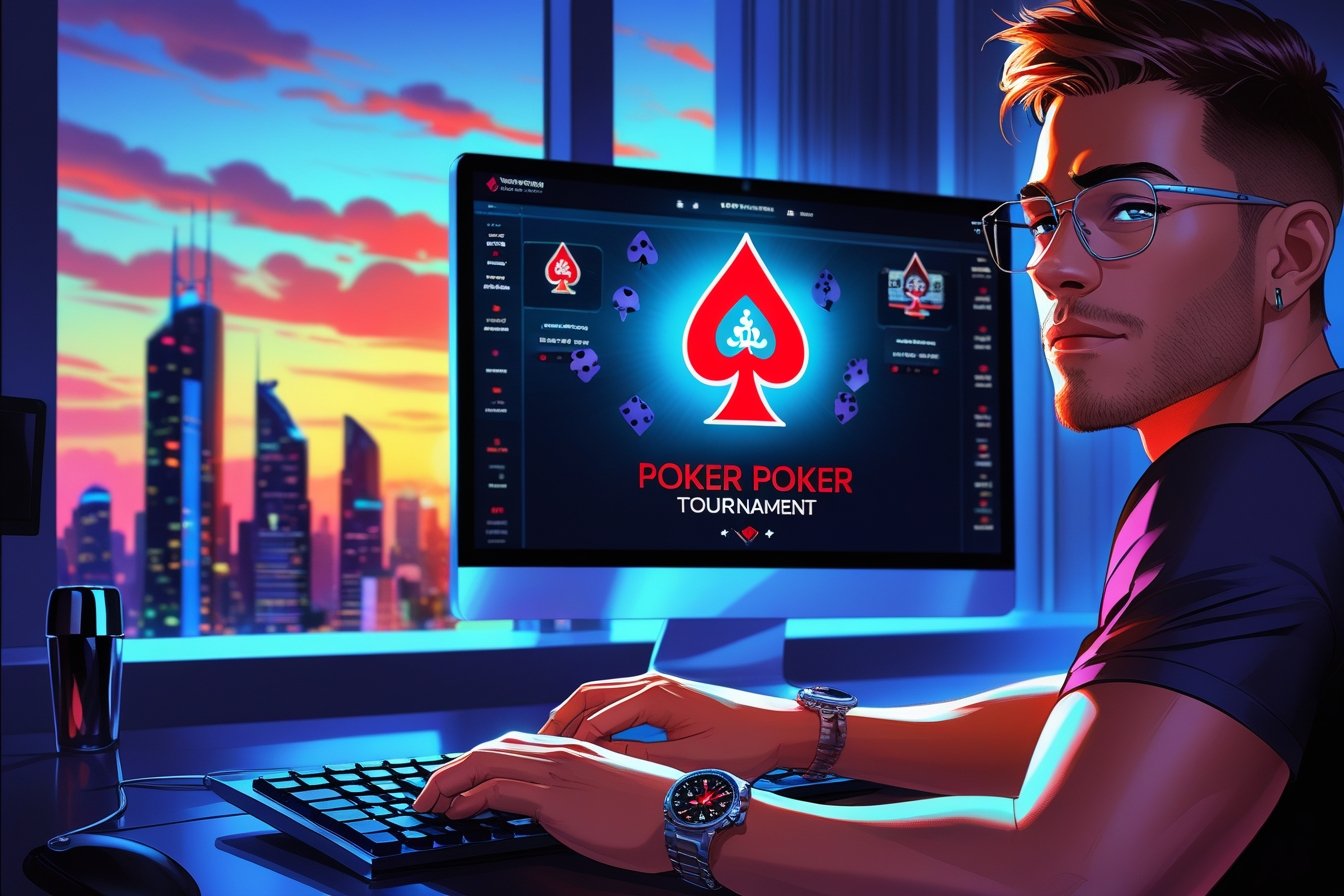10 Tips to Dominate Online Poker Tournaments

Ready to crush online poker tournaments?
The allure of online poker tournaments is undeniable. The low buy-ins, the massive prize pools, and the thrill of outlasting hundreds, even thousands, of opponents – it's a potent combination. However, navigating the complex landscape of a multi-table tournament (MTT) requires more than just knowing the basic rules. Consistent success demands a strategic approach.
Tips to Dominate Online Poker Tournaments
Here are 10 essential tips to help you dominate your next online poker tournament:
1. Understand the Different Stages:
MTTs evolve significantly as they progress. Early stages allow for more loose play and value betting, focusing on building a decent stack. The middle stages demand tighter play, awareness of chip stacks, and strategic stealing of blinds. Late stages are all about survival, making calculated risks, and maximizing your chip lead or fighting back with a short stack. Adjust your strategy accordingly.
2. Master Bankroll Management:
Before even entering a tournament, ensure the buy-in represents a small percentage of your overall poker bankroll. Chasing losses or playing in poker tournaments beyond your means is a recipe for disaster. Proper bankroll management allows you to weather variance and stay in the game long-term.
3. Exploit Weak Players Early On:
The initial stages of an MTT are often filled with less experienced players. Identify these weaker opponents and exploit their tendencies. Play tighter against stronger players but don't hesitate to value bet aggressively against those who call too loosely or fold too easily.
4. Pay Attention to Position:
Just like in cash games, your position at the table is crucial in tournaments. Playing in late position offers more information and control over the hand. Be more selective with your starting hands in early position and be prepared to play more aggressively when acting last.
5. Learn Effective Blind Stealing and Defending:
As the blinds increase, so does the importance of stealing and defending them. Understand which hands are profitable to steal with from late position and develop a strategy for defending your blinds against aggressive raisers.
6. Be Aware of ICM (Independent Chip Model):
In the later stages of a tournament, especially around the bubble and final table, ICM becomes a significant factor. ICM dictates the monetary value of your chip stack based on the remaining prize pool and the stack sizes of the other players. This influences your calling and shoving ranges, often requiring tighter play than in a pure chip-ev situation.
7. Practice Patience and Discipline:
Online poker tournaments can be long and grueling. Avoid playing too many hands out of boredom or frustration. Stick to your game plan, wait for good opportunities, and don't let emotions dictate your decisions.
8. Utilize Tournament Statistics and HUDs (Heads-Up Displays):
If your poker site allows it, using a HUD can provide valuable real-time statistics on your opponents' playing styles. This data can help you make more informed decisions and exploit their tendencies more effectively.
9. Adapt to Different Table Dynamics:
Every poker table is different. Pay attention to the playing styles of your opponents and adjust your strategy accordingly. Are they aggressive and prone to bluffing? Play tighter and look for value. Are they passive and tight? You can be more aggressive with your steals and bluffs.
10. Review Your Play and Learn from Mistakes:
After each tournament, take the time to review your key hands and identify areas for improvement. Analyze your decisions, see where you could have played differently, and learn from your mistakes. This continuous learning process is crucial for long-term success in online poker tournaments.
By implementing these ten tips into your online poker tournament strategy, you'll be well-equipped to navigate the challenges, outmaneuver your opponents, and ultimately, increase your chances of reaching the final table and taking down the top prize. Good luck at the virtual felt!
Jan. 24, 2024
April 16, 2024
Jan. 17, 2024
Leave a reply